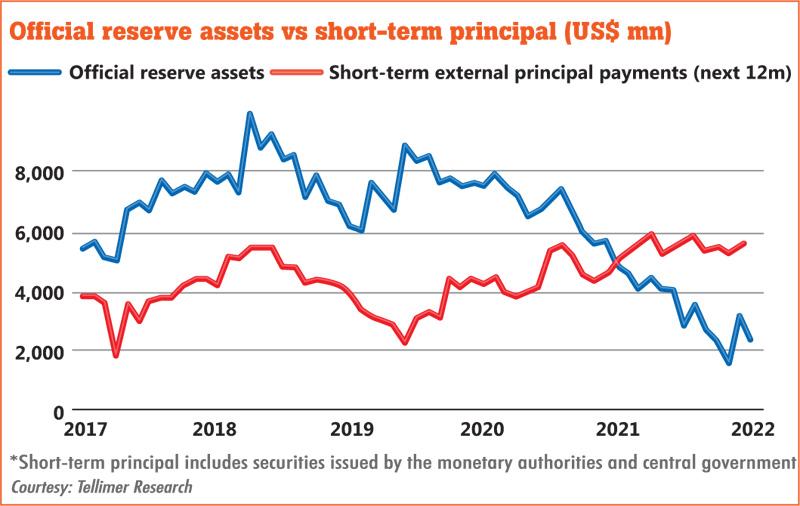In today’s interconnected global economy, countries rely on foreign exchange (forex) reserves to maintain economic stability and financial security. Forex reserves are a key element of a nation’s financial infrastructure, enabling countries to engage in international trade, manage exchange rates, and mitigate financial crises. Understanding the significance of forex reserves is crucial for comprehending the complex workings of the global financial system.

Image: www.tamilguardian.com
Definition and Importance of Forex Reserves
Forex reserves refer to the stock of convertible foreign currencies, gold, and other assets held by central banks and monetary authorities. These reserves serve as a war chest against economic vulnerabilities and unforeseen circumstances that may arise in a country’s economy. By maintaining adequate forex reserves, a country can:
- Facilitate International Trade: Forex reserves allow countries to settle international transactions and import essential goods and services, even when facing trade imbalances.
- Stabilize Exchange Rates: Central banks intervene in foreign exchange markets using forex reserves to manage exchange rate fluctuations, prevent excessive volatility, and ensure stability for businesses and consumers.
- Mitigate Financial Crises: Forex reserves provide a buffer against financial crises by allowing countries to repay external debts, support domestic currencies, and prevent destabilizing capital outflows.
- Support Economic Growth: Adequate forex reserves instill confidence in foreign investors, attract foreign direct investment (FDI), and contribute to overall economic growth and development.
Importance of Diversifying Forex Reserves
Central banks do not keep all forex reserves in a single currency. Diversification is key to managing risks and maximizing returns. A well-diversified portfolio of currencies, gold, and other assets helps mitigate currency fluctuations and ensures the stability of reserves.
How Forex Reserves Are Managed
Central banks are responsible for managing forex reserves following established monetary and fiscal policies. They intervene in foreign exchange markets to buy and sell currencies in order to achieve economic objectives. They also invest forex reserves to generate returns and enhance the value of their holdings.
Conclusion
Forex reserves are an indispensable component of a nation’s economic stability and financial security. They enable countries to participate in international trade, manage exchange rates, combat financial crises, and foster economic growth. Central banks play a critical role in managing forex reserves effectively, ensuring the optimal functioning of the economy and safeguarding the interests of its citizens. Understanding the importance of forex reserves empowers individuals to appreciate the intricacies of the global financial system and the measures taken by governments to protect their economic well-being.

Image: dailyasianage.com
Why Forex Reserve In Needed






